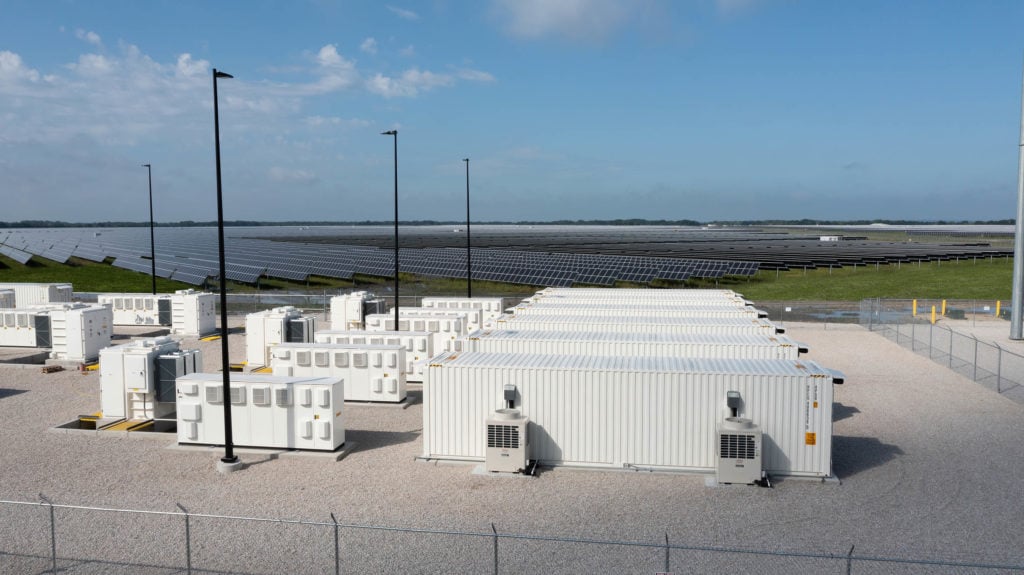
The low prices and strict operational requirements in Italy’s recent MACSE auction for BESS have brought asset management and operational execution into the spotlight.
Italian state-backed utility and power firm Enel won just over half of the 10GWh of awarded capacity in TSO Terna’s long-term battery energy storage system (BESS) capacity procurement scheme, called MACSE, which concluded in September.
Many have praised Terna’s structuring of the scheme but also pointed out that its low prices and operational requirements meaning winning project operators will need to have a robust operational and asset management strategy in place. Future auctions are planned, with Terna ultimately looking to procure around 50GWh.
In the lead-up to our publisher Solar Media’s Battery Asset Management Summit Europe 2025 in Rome next week (2 & 3 December), we heard from numerous owner-operators on the auction and BESS asset management in Europe more widely.
Try Premium for just $1
- Full premium access for the first month at only $1
- Converts to an annual rate after 30 days unless cancelled
- Cancel anytime during the trial period
Premium Benefits
- Expert industry analysis and interviews
- Digital access to PV Tech Power journal
- Exclusive event discounts
Or get the full Premium subscription right away
Or continue reading this article for free
“The MACSE framework increases demand for revenue certainty, though market supply of certainty remains limited,” said Hassen Bali, co-founder and director of BESS developer Ion Ventures told Energy-Storage.news.
MACSE
The implications of the auction will, obviously, most keenly felt by the developers, owner-operators and IPPs that won contracts: Enel, ACL, Greenvolt Power, BW ESS, Ze Energy, Whysol, Eni Plenitude and Natpower. Many have commented on the scheme’s strict operational requirements, although two of the companies which spoke to Energy-Storage.news gave slightly differing views to each other.
“We are aware that the MACSE regulation is very strict and punitive if the BESS has lower availability, RTE, and usable energy capacity (degradation). We ensured that our MACSE bid included sufficient buffers,” Roberto Jimenez, executive director at BW ESS said.
“It’s not necessarily strict, but it is very clear,” said Antonio Montoto, head of storage for developer and operator Greenvolt Power in a recent interview.
“I think Terna and ARERA did a good job in aligning the penalties with what the system can provide. The risk of not aligning with those is low, the operational conditions are reasonable, but we obviously still need to take care.”
One executive at a firm that took part in the scheme was unequivocal, saying winners would need ‘near-flawless’ discipline.
“MACSE winners will need near-flawless operational discipline: 24/7 monitoring, rigorous preventive maintenance, real-time KPI tracking, and degradation-aware dispatch, as Terna’s penalties leave no room for availability dips or optimisation errors,” they said.
Meanwhile, developer Ion Ventures co-founder and director Hassen Bali said that advanced forecasting and grid analytics will become essential for projects taking part.
“Winning assets will face stringent performance requirements and must ensure high availability and compliance with dispatch schedules,” Bali said.
“Advanced forecasting and grid analytics will become essential to respond to signals and maintain performance. Lifecycle-aware optimisation is critical to balancing compliance, revenue maximisation and battery health over the multi-year MACSE period.”
Many also pointed to the low prices of the scheme, although the CEO of Italian optimiser Ego Energy last week told us that the relative revenue levels of MACSE would increase over time, as the value of other revenue sources fell (like ancillary services).
MACSE still allows for revenue stacking, with opportunities in the MSD (Italy’s ancillary service markets, the Mercato Servizi di Dispacciamento) and Fast Reserve-style services. Greenvolt, however, bid all of its project’s capacity into the scheme, meaning it will be solely a MACSE project.
Wider implications
So what are the implications of MACSE for the wider industry?
Bali earlier mentioned one side effect of increasing the demand for revenue certainty from BESS, which can be gained via things like tolls, PPAs and state-led mechanisms like capacity markets (CM) or EU-backed capex schemes.
Another, posited by the executive who was speaking anonymously, said that the Italian market could see a shift in how risk is shared between parties in the BESS value chain.
“In Italy, developers still shoulder most performance and market risk, but we expect a shift toward performance-linked EPC/OEM contracts and revenue-sharing agreements with optimisers due to MACSE’s strict penalty framework,” they said.
Discussing the wider industry, Bali said he sees the evolution of risk-sharing to develop more around revenue-sharing contracts, performance-based incentives for operation and maintenance, risk diversification via aggregated portfolios and the standardisation of insurance products to cover degradation, revenue volatility and grid-connection risk.
Evolution of BESS asset management in Europe
Our sources also discussed the wider European BESS asset management space, at a time when gigawatts of capacity are starting to come online outside of the ‘early-mover’ markets of the UK and Germany.
“The rapid growth in deployed batteries has shifted the market from paper-based development to real-world delivery and active asset management,” Bali said.
Other major trends he identified were increasing maturity in the market, tighter grid integration requirements, improved monitoring and predictive analytics for real-time SoH/SoC and performance tracking and greater dynamic participation across multiple revenue streams, from frequency regulation to arbitrage and capacity markets.
In Italy specifically, the anonymous executive said that Terna’s market rules are driving the change in asset management approach.
“In Italy, best practice has moved from simple availability monitoring to advanced asset analytics driven by Terna’s ancillary market rules, with precise degradation forecasting, stricter warranty monitoring, and fully automated bidding systems,” they said.
Performance metrics and reporting are also being standardised, improving transparency for investors and regulators, Bali said. AI-based optimisation is also becoming a more central topic. Last week, optimiser Suena said that AI is also now pivotal to overall asset management, not just market participation.
